The Legion of Good Will and the Ideology of the Good Samaritan
Dear Friends and Brothers, on January 1, 1950, on World Day of Peace, the Legion of Good Will (LGW) appeared on Earth under the inspiration and the auspices of the words and examples of Our Lord Jesus Christ. Its main foundation is contained in the Gospel-Apocalypse of the Celestial Leader.
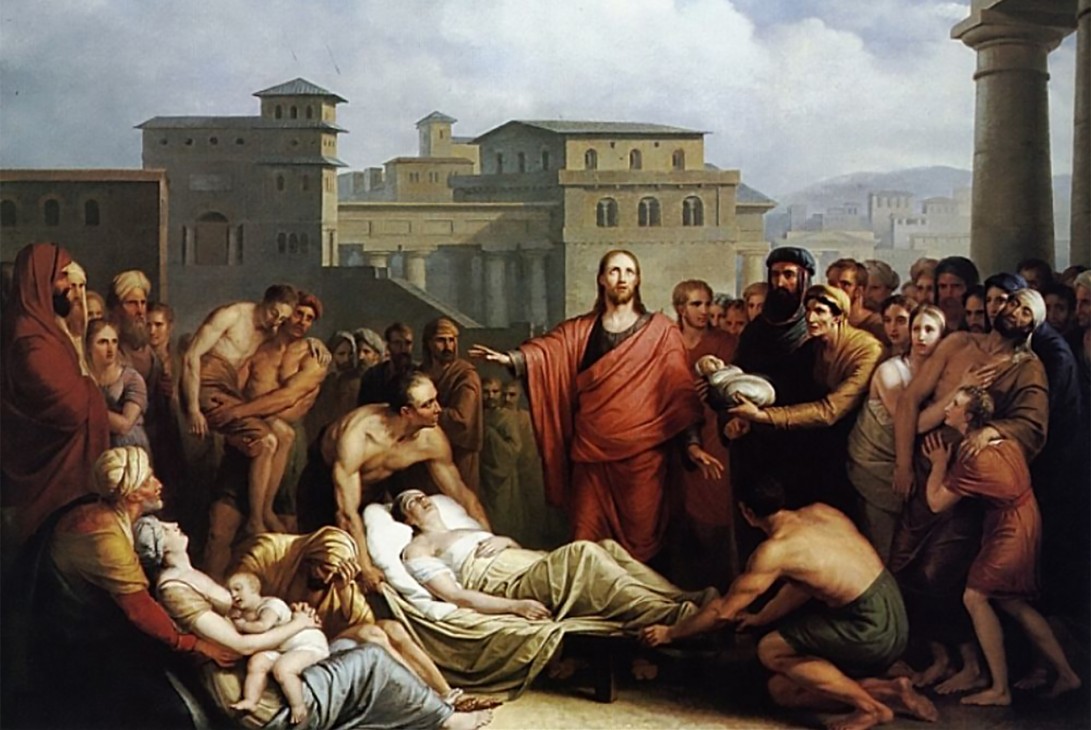
And, on the dawn of this New Year, when the LGW completes another beneficial year of existence, I express my continuous satisfaction to witness its outstanding presence amidst the people and its contribution towards the sustainable development of the Brazilian society, with its beneficial influence in the area of Education with Spirituality and its growing presence in the world.
LGW is also Communication
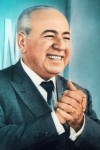
Alziro Zarur

Saint Francis of Assisi
On this historical date for those of Good Will, I can clearly recall once again that morning of June 29, 1956, when I heard Alziro Zarur (1914-1979) on Tamoyo radio station of Rio de Janeiro, speaking of the LGW’s mission in helping the humble people and in preparing the path for the Triumphant Return of the Christ of God. Back then, the campaign to purchase the Good Will Radio Station (formerly, Mundial Radio Station) was in full swing, which ended in its successful acquisition. And to prepare the return of the Divine Master—as Saint Francis of Assisi (1181-1226), Patron of the LGW, referred to Him—is also to ceaselessly divulge His Gospel-Apocalypse in Spirit and Truth, not literally*1, which can cause a calamity known as fanaticism. It should be done in the light of His New Commandment—the Law of Universal Love—which means to fully live out His words and examples, without despising other paths. To consider oneself the sole owner of truth is equivalent to walking side-by-side with falsehood. The miracle that God expects from Men is that they learn to love one another.
That is why Jesus has already stated that:
Love one another as I have loved you. Only by this shall all of you be recognized as my disciples, if you have the same Love for one another. (...) There is no greater Love than to lay down his own life for his friends. (...) Therefore, as the Father has loved me, so have I loved you. Remain in my Love. (The Gospel of Christ according to John, 13:34 and 35; 15:12, 13 and 9).
The LGW is also Communication! Its heroic saga is not restricted to giving aid to those who hunger from their stomachs, but rather it extends to a spiritual support, because when the Spirit is reformed by the enlightenment of That Which is Divine and by the pedagogical affection, everything tends to improve. The Organization works towards Education and Culture, Food, Security, Health and Work with Ecumenical Spirituality.
A beautiful lesson from Christ
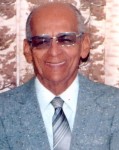
Bruno Simões de Paiva
Speaking to a welcoming audience in the year of 1991, in Portugal, I revealed that I was a little boy when I first came to know the Holy Bible, in particular the Good Tidings*2 of Jesus, which was shown to me by my late father, Bruno Simões de Paiva (1911-2000). He spoke to me of a moving story told by the Christ of God to the people: the Parable of the Good Samaritan. And he read it to me. The passage can be found in the Gospel according to Luke, 10:25 to 37:
“25 On one occasion an expert in the law stood up and tempted Jesus by asking, ‘Master, what must I do to inherit eternal life?’.
26 Jesus said to him: What is written in the law? How do you read it?
27 And the expert in the law answered: ‘Love the Lord your God with all your heart and with all your Soul and with all your strength and with all your mind; and Love your neighbor as yourself’*3.
28 And Jesus replied: You have answered correctly; do this and you will live.
29 But the expert in the law, willing to justify himself, said to Jesus: ‘And who is my neighbor?’.
30 And the Master replied by telling a parable: A man was going down from Jerusalem to Jericho, when he fell into the hands of robbers. They stripped him of his clothes, beat him and went away, leaving him half dead.
31 A priest happened to be going down the same road, and when he saw the man, he passed by on the other side.
32 And likewise a Levite, when he came to the place and saw him, passed by on the other side.
33 But a Samaritan, as he traveled, came where the man was, and when he saw him, felt pity on him;
34 He went to him, and bandaged his wounds, pouring on it oil and wine; and he put the man on his own donkey, took him to an inn, and took care of him.
35 The next day, he took out two denarii (An antique Roman silver coin), and gave them to the innkeeper, and said to him: Look after him, and when I return, I will reimburse you for any extra expense you may have.
36 And Jesus asked the man of law: Which of these three do you think was a neighbor to the man who fell into the hands of robbers?
37 And the expert in the law replied ‘The one who had mercy on him’. Then said Jesus to him: Go and do likewise”.
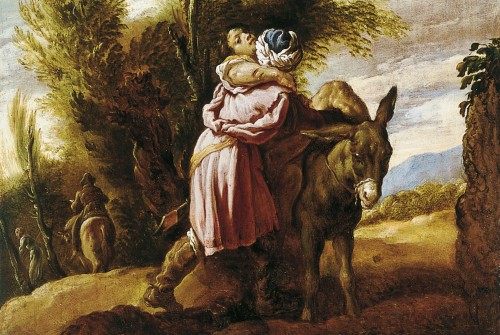
When I reread this Parable, with my Soul deeply touched, I meditate on the beauty of this lesson from the Ecumenical Christ, the One who is willing to help those in need and pain and who awakened the value of Solidarity in me, and made me whole-heartedly willing to take part in this divine organization called Legion of Good Will when I was still an adolescent, without ever deserting from it. After all, we have learned from Jesus to persist to the end:
“By your endurance, you will save your souls” (The Gospel of Jesus, according to Luke, 21:19).
Moreover, in the concept of those of Good Will, to be persistent in the Path of the Lord means to go beyond the so-called end of human life, because Life continues, for the dead do not die. This affirmative is also valid for our atheist Brothers, among which one can find individuals of great generosity.
Very well, here I am working hard for the Institutions of Good Will for over half a century and quite happy to be next to all of You, to be able to render my services to this Sublime Cause that has the following motto since its origin: for a better Brazil and a happier Humanity.
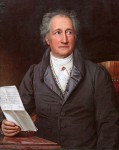
Goethe
What sustains me is the perseverance taught by the Divine Workman in His Gospel of freedom. I always bear in mind a serious warning given by the German philosopher Goethe (1749-1832), a genius who brought light to the world in the 18th and 19th centuries. As the author of Faust once said:
“Knowing is not enough; we must apply. Willing is not enough; we must do”.
The true form of existence

Voltaire
Returning to the lesson of the Parable, we can observe in the behavior of this Samaritan (a representative of a despised community in those bygone days) the true way of living of a solidary citizen that is strongly emphasized by us for decades. This passage demonstrates that it is not sufficient to just educate. It is imperative to spiritualize individuals and, go furthermore, to show to all Human and Spiritual Beings the importance of affection and understanding so that a truly fraternal society can exist. The challenging Voltaire (1694-1778) stated in Eriphyle, act III, scene 20:
“All men are equal; it is not their birth, but virtue itself that makes the difference”.
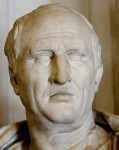
Cicero
Cicero (106-43 B.C.), one of the most respected Roman orators and political thinkers, meets my reasoning when he states that:
“Men should do only that which, being useful to them, may also be useful to others”.
These examples I offer you may seem romantic to the pragmatists (of course I am referring to those deprived of Fraternity, since there are those who have their Souls full of benevolent feelings). By the way, I once said the following to a group of friends: To be an idealist, yes; but please, with talent and pragmatism. One must have an ideal, and above all, be capable of putting it into practice, so that one may continue to deserve the blessings of God.
Brazil will become the Heart of the World and Homeland of the Ecumenical Gospel when these qualities become common among its inhabitants. After that, it will truly be transformed into an abundant source of the planet. Source of not only the wheat that is reaped from the soil, but of that which is reaped from the Soul.
When I refer to the Good Tidings of Jesus, I do not see it as an attribute of a privileged part of Humanity. The moral language that He conveys belongs to all the hearts that strive for a world with more understanding.
In all ages, many notorious figures in History adopted as themes for their reflections some of the most admirable feelings that the Human Being can express. In times of so much hedonism, it is good to remind ourselves of some of them:
“Do not make anyone suffer: we are all sons and daughters of the same God. (...) To facilitate a good action is the same as doing it”.
Prophet Mohammed (560-632 B.C.) — “May the peace and blessings of God be upon him!”
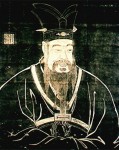
Confucius
“If men placed their duties before their victories, wouldn’t they be improving their character?”
Confucius (551-479 B.C.)
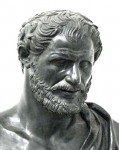
Democritus
“Man is not unhappy when he acts with justice”.
Democritus (460-370 B.C.)
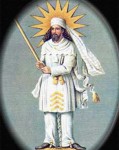
Zoroaster
“The greatest and best prince is he whose land is more fertile under his rule”.
Zoroaster (628-551 B.C.)
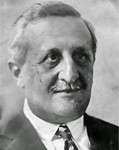
José Pereira de Graça Aranha
“He who transforms all emotions, such as melancholy, sadness, pleasure or pain into beauty, lives in eternal bliss”.
José Pereira de Graça Aranha (1868-1931)
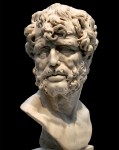
Seneca the Younger
“Wherever there is a human being there is an opportunity for kindness”.
Seneca the Younger (4 B.C.-65 A.D.)

Samuel Taylor Coleridge
“Greatness and goodness are not means, but ends”.
Samuel Taylor Coleridge (1772-1834)
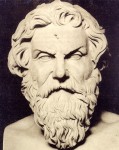
Antisthenes
“Acknowledgment is the memory of the heart”.
Antisthenes (444-365 B.C.)
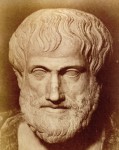
Aristotle
“In justice is all virtues found in sum”.
Aristotle (384-322 B.C.)

Jean M. de La Bruyére
“Nothing so well refreshes one’s blood like a good deed”.
Jean M. de La Bruyére (1645-1696)
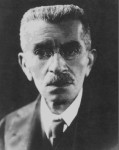
Coelho Neto
“If a genius is greatness, then kindness is excellence; the most dignified man is he who is most concerned with common good, seeking, through the power of his spirit, to correct that which is wrong and lessen the suffering of the unfortunate”.
Coelho Neto (1864-1934)
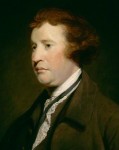
Edmund Burke
I also recall a quote from Edmund Burke (1729-1797) which applies perfectly to what I humbly have to say:
“All that is necessary for the triumph of evil is that good men do nothing”.
Naturally, Burke is fighting against the evil of cowardice with his words.
And right here we can also add a quote of another great philosopher, Confucius, because we are in favor of Peace, not of impunity:
“Repay Kindness with Kindness, but evil with Justice”.

Blaise Pascal
Regarding the correct applicability of the teaching of this Chinese sage, scientist and mathematician Blaise Pascal (1623-1662) warns us of the need for symmetry between vigor and rightness:
“Justice without force is powerless; force without justice is tyrannical. Therefore, it is necessary to harmonize justice and force so that whatever is powerful may be just, and whatever is just may be powerful”.
The weakness of Man and the Divine Providence
(...) In light of all this, nothing better than to listen to the message delivered by “A Prayer of Moses, the Man of God”, found in Psalm 90, verses 12 and 16:
“12 Teach us to number our days aright, that we may gain a heart of wisdom.
“16 May your deeds be shown to your servants, your splendor to their children”.
Our destiny

Charles Chaplin
I also bring to you the timely and significant page attributed to Charles Chaplin (1889-1977) kindly sent to me by my beautiful cousin Ana Paula Bomfim Kistmann, who lives in the U.S.
Chaplin, one of the greatest movie geniuses, demonstrates that the Human Being must sustain both in his/her mind and heart the purpose of forging ahead, even in face of the tribulations of life.
“Today I woke up thinking about the things I have to do before the clock strikes midnight. It is up to me to choose what kind of day I will have today. I can nag about the rain, or I can thank the waters for washing away the pollution in the air. I can be sad because I do not have any money, or feel encouraged to deal with my finances, thus avoiding waste. I can complain about my health, or be thankful because I am alive.
I can grumble because my parents were not able to give me everything I wanted, or I can be thankful because I was born. I can complain for having to go to work, or I can be thankful because I have a job. I can feel bored with the housework, or I can thank God for having this opportunity. I can lament myself for the deception I might have with friends, or I can feel enthusiastic for having the possibility of making new friendships.
If things did not come as I planned, I can spend my time lamenting myself or be happy for having today to restart. The day is in front of me, waiting to be lived, whatever way I choose. And here I am, a sculptor who can give form to ideas and utilities to the hours. It is all up to me!”.
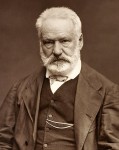
Victor Hugo
Old Victor Hugo (1802-1885) was right all along:
“Those who affirm today that something is impossible to be achieved are tacitly placing themselves beside those who are destined to fail”.
Acknowledgments
A new year begins. With the kind help of the people, we have come this far. I wish to express my sincere gratitude for all who have contributed towards the LGW’s success: its volunteers and contributors. Our warmest ‘thank you’ goes also to the authorities, the religious, atheists alike, actors and actresses and the media. At last, to all people of Good Will who help us. To the participants of the Peace Culture Club, I wish to offer my encouragement. To the supporters of the Religion of God, Christians of the New Commandment of the Ecumenical Jesus, the Divine Statesman, who taught us all to help each other to the point of even professing Love towards one’s enemies (The Gospel according to Luke, 6:27) I offer my incentive. To everyone I reiterate my very best wishes for a New Year full of accomplishments, both spiritual and material, under the enlightenment of Peace, Fraternity, Truth and Justice. Regarding this last one, Rui Barbosa (1849-1923) has proffered:
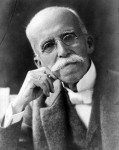
Rui Barbosa
“In this word—Justice—fits almost entirely the notion of our happiness on Earth. It is the substance of civilization, the essence of society, the synthesis of Christian policy. Nations prosper or fall according to how well they know how to keep it”.
Whoever trusts Jesus never wastes time, because He is the Great Friend who never abandons a friend halfway.
___________________
*1 Literally — The second Epistle of Paul to the Corinthians, 3:6 — “The letter kills, but the Spirit gives life”.
*2 The Good Tidings (of Jesus) — Gospel means Good Tidings.
*3 “Love the Lord your God with all your heart, and with all your Soul, and with all your strength, and with all your mind, and love your neighbor as yourself.” — Leviticus 19:18
The comments do not represent the views of this site and are the sole responsibility of their authors. It denied the inclusion of inappropriate materials that violate the moral, good customs, and/or the rights of others. Learn more at Frequently asked questions.